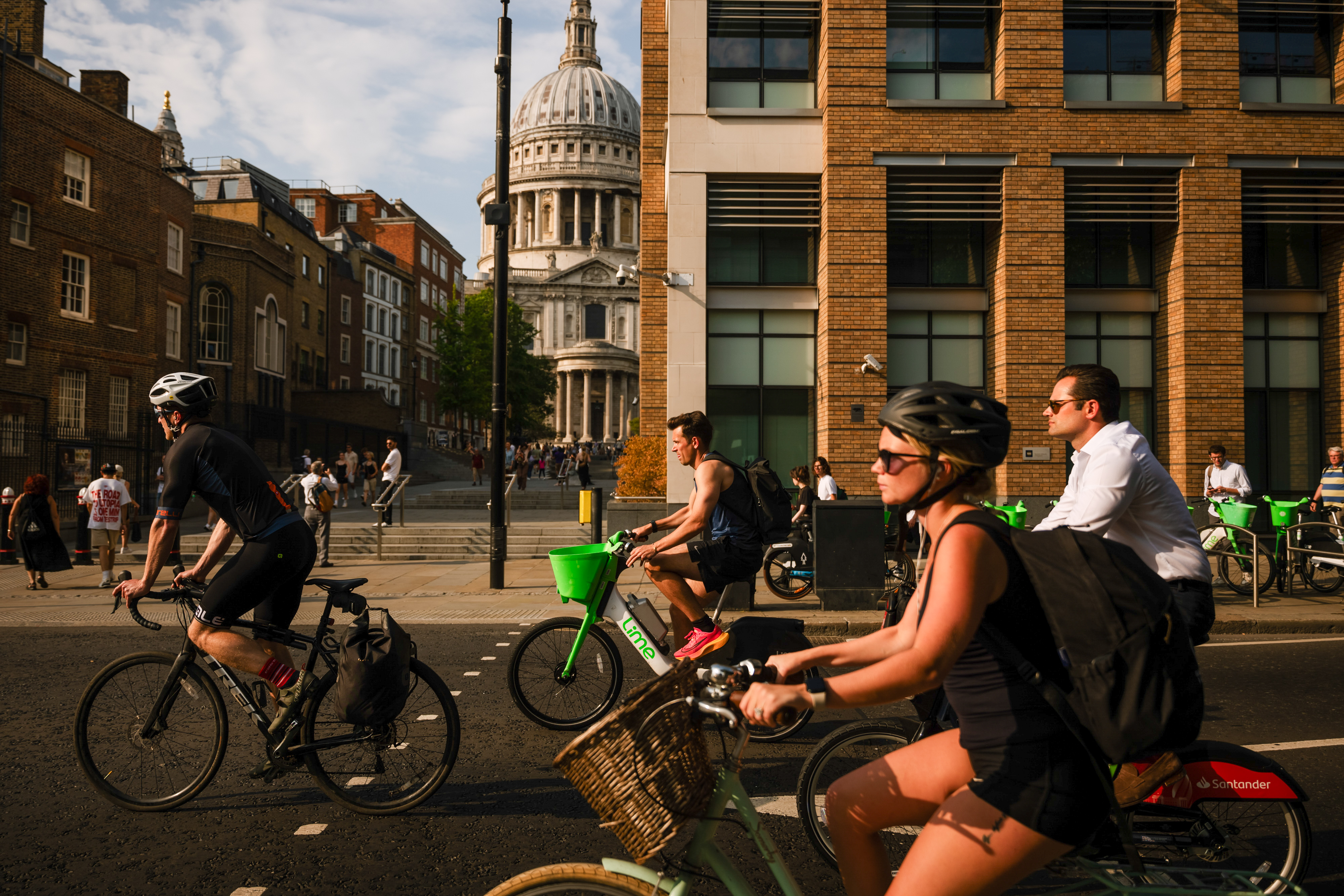
The UK's new Labour government's promise to invest "unprecedented levels of funding" in cycling and walking has been welcomed, with Cycling UK saying they were "thrilled" at the announcement.
In an interview with The Guardian on Tuesday, Labour's transport secretary, Louise Haigh, said that the government would aim to cut GP appointments "by hundreds of thousands, if not millions a year" by encouraging more people to cycle or walk.
There was no specific reference to cycling in Labour's manifesto, merely "active travel", but Haigh said that it would be "utterly essential to developing our national integrated transport strategy".
It is a dramatic change of tone and policy from the last Conservative government, who cut the active travel budget and spoke of a "war on drivers", and sought to stop low traffic neighbourhoods (LTNs) being built.
>>> What happened to the 'golden age' for cycling in the UK?
Haigh said that the new government would also develop a new road safety strategy, something that has not been in place in England since 2019; around 29,643 people were killed or seriously injured on Britain's roads in 2023.
The transport secretary said that the strategy would mean long-term funding deals put in place across the country, allowing cycling routes like the National Cycle Network to be developed.
"We absolutely want to make sure that we invest at unprecedented levels," Haigh said. "We just want to make sure that the funding is delivered where it’s needed… rather than where they’ve got the best bid writers, and where they’ve been good at hoovering up resources."
"Cycle lanes and active travel work isn’t properly joined up," she said, also arguing that it was an "anomaly" that the National Cycle Network was run by a charity - Sustrans - while the government runs roads and rail.
Xavier Brice, the chief executive of Sustrans, said that his organisations was "ready to work in partnership with the government, mayors and local councils” to continue upgrading the network."
"Safe, accessible and consistent walking, wheeling and cycling routes will free people up to choose how they travel rather than feeling locked into expensive car use that many can’t afford to access jobs, education or everyday journeys such as nipping to the shops," he added.
Haigh said that transport was a "liberator" which helped other facets of government, such as education and health.
"It has knock-on effects everywhere else: it gets people healthier, it reduces the burden on the NHS because people are living healthier lives for longer," she said.
"I am here to make sure that education can deliver those educational opportunities and make sure that people from all backgrounds can achieve no matter what postcode they’re brought up in. [Transport is]… essential for delivering growth and obviously net zero and safer streets, safety on public transport networks, safety for women cycling down dark alleyways: they can’t do any of it without transport."
As driving became more expensive for many, Haigh also said that access to safe cycle routes was "a basic element, is a basic tenet of social justice".
Sarah McMonagle, Cycling UK's director of external affairs, said that this showed the government had "embraced the shift" to active travel.
"We are thrilled that the Transport Secretary has made a firm commitment to ‘unprecedented levels of funding’," she said. "By embracing a shift towards active travel, the government has begun to lay the foundations for a future where everyone has access to clean air, safer streets, and a more sustainable way of getting around.
"For decades, Cycling UK has stressed the potential for cycling to not only improve public health, but address the climate crisis head-on, boost the economy, and help to ease the cost-of-living crisis for everyone. Research by the IPPR, supported by Cycling UK, revealed that at least 10 percent of the total transport budget should be dedicated to active travel within five years to ensure that these benefits are realised.
"We know from working with communities that public support is strong, and we have a clear roadmap to create happier, healthier, greener lives through cycling," she continued. "We hope to see the government translate these positive words into firm spending commitments for active travel in the forthcoming Autumn Budget."







